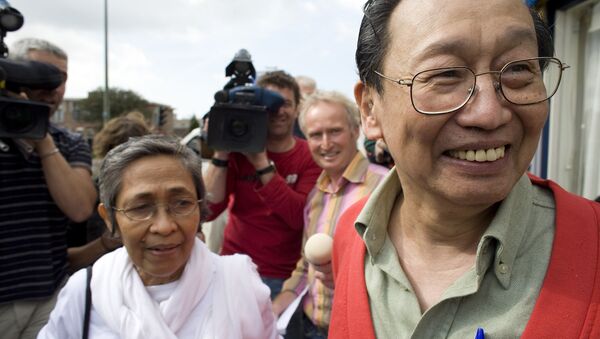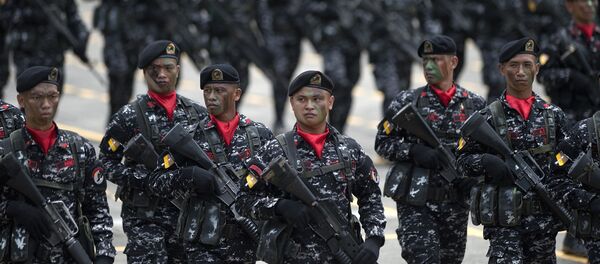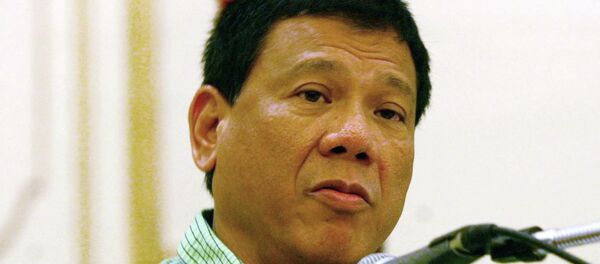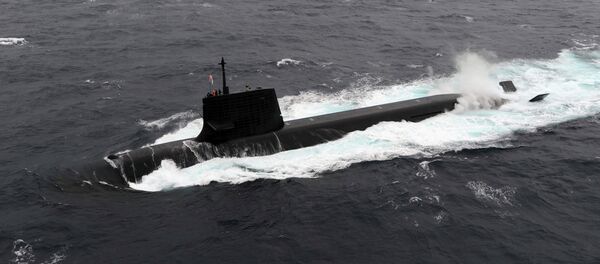Sison, 77, is the founder of Communist Party of Philippines (CPP), the opposition movement founded in 1968 with the aim of removing then-dictator Ferdinand Marcos, and of removing the influence of "American imperialism" and "Japanese imperialism" from the country. The New People's Army (NPA) is the military arm of the CPP.
According to Sison, the initial ceasefire order by President Duterte did not come as much of a surprise. Sison says Duterte already signaled his intention to announce a truce, but the NPA did not expect anything more than that "expression of intent." Instead, Duterte has made a "fuzzy" statement that he declared to be an immediate unilateral ceasefire.
This has caused a significant amount of confusion, Sison says. Initially, Duterte's office did not present a written document, and, after NPP asked for such a document, the Suspension of Military Operations Order (SOMO) was revealed to contain major "defects".
"There was no reference to stopping of ongoing military and police campaigns against [the NPA]. There was also no reference to withdrawal of troops from communities they were occupying, including schools and meeting places," Sison told Loud & Clear.
The next day, the government issued another order, a Suspension of Police Operations (SOPO), which indicated the police will continue with "legal offensives" against the NPA.
"In parlance of the police the ‘legal offensive' means inventing charges of common crimes against those suspected of having connections to the NPA," Sison said. "And according to the principles of jurisprudence it is unlawful to multiply charges out of a single charge of rebellion."
"We gave President Duterte the benefit of a doubt," he continued, explaining that the NPA announced that it will reciprocate, but that time is needed both to examine the issued orders and formulate their own ceasefire order. Luis Jalondoni, the leader of National Democratic Front (NDF), a coalition of the CPP, the NPA and some other groups, has told his counterpart that the exchange of the ceasefire order should happen on August 20.
Sison says he thinks that it will be relatively easy for the NDF to reciprocate with a unilateral ceasefire order, and when the peace negotiations advance, it will be possible to cement the mutual ceasefire in a single document.
President Duterte enjoys significant electoral support, and as a supreme commander of the armed forces, he can feel confident as he acts, says Sison. Duterte can also reshuffle the officers of the armed forces that were loyal to the previous administration.
But "big dangers" to the peace process may come later, says Sison, if the "United States, for instance, finds the Duterte government off the line, so to say."
Duterte poses himself as a patriot, as a socialist, says Sison, and he appears to act true to his words. But this may mean the US will become "angry" at Duterte, as Washington wields "the biggest influence at the puppet armed forces of the Philippines, because the US supplies the indoctrination, the officer training, military supplies and even the intelligence."
"Duterte will have to rely on the people, on the big part of the armed forces, because the armed forces consist of children of the working class and peasantry, and many officers come from the urban petty bourgeoisie. Only a small number really come from the upper class."
Duterte could deploy rapid political education among the ranks of the armed forces, which may prove effective in driving the Philippines military away from being an army of "mercenaries" for the United States, says Sison.





